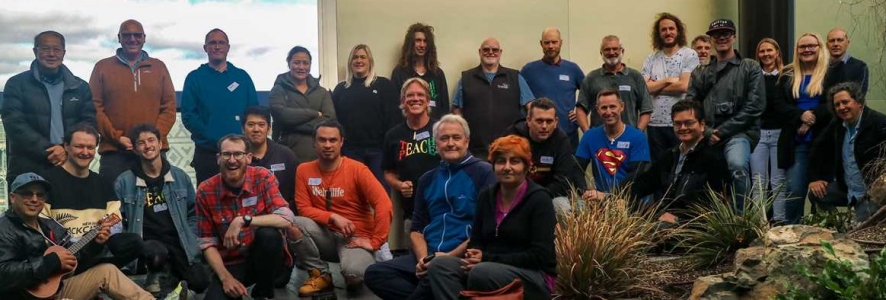
- Details
- Category: Articles
If you live in New Zealand, there is every chance that your child will not have a male teacher until they reach high school.
Startling. But is it important? Education Minister Hon Hekia Parata argues that it is the effectiveness of the teacher, rather than the gender of the teacher, that makes a difference to a child’s learning.
A fair claim, perhaps. After all, New Zealand has a stellar reputation for promoting equality between the sexes, particularly as it relates to the workplace. We have women CEOs, women prime ministers, and of course, women principals. We are fairly agreed that there’s no difference in the capabilities of the sexes, so is it really important if only 18 per cent of primary school teachers, and just 2% of early childhood education teachers, are male?
- Details
- Category: Articles
Seiuli Sauni (Faculty of Education, The University of Auckland). Culture – Research
There is a Samoan saying: “O fanau o mea alofa mai le Atua” meaning, our children are gifts from God”. According to our history, Samoan men have been responsible for the empowerment and transmission of spiritual and cultural knowledge. This paper will explore the spiritual and cultural status of authority that Samoan men are accustomed to. It draws on the narratives and the findings from a small-scaled research project which explored the perspectives of four Samoan male teachers. The findings suggest there were particular aspects of the church and culture that influenced their involvement in early childhood education. This paper discusses the importance of their roles and responsibilities in maintaining cultural values, spiritual experiences and cultural identities of children in early childhood settings. Furthermore, their views on their children as learners will be considered in this presentation. It concludes with a discussion about the need for more male educators and implications of their roles in the holistic development in early childhood settings.
Read more: Children are gifts from God: Samoan male teacher perspectives
- Details
- Category: Articles
“The YMen Project”is an initiative developed by Wellington Kindergartens in conjunction with the Ministry for Social Development through Work and Income New Zealand. The premise behind the project was first developed in 2008 by teachers and management within Wellington Kindergartens to address the chronic shortages of men working in early childhood education and high rates of unemployment among men under the age of 24 years.
- Details
- Category: Articles
This is a letter from the Ministry of Education responding to a recommendation that advertising be used to attract more men to teaching.
- Details
- Category: Articles
Click below to veiw an interview with Bethlehem Tertiary Institute ECE lecturer, Philip Ozanne
There has been a lot of attention in the media lately given to the shortage of male teachers in the Early Childhood Sector. It is estimated that only 2% of Early Childhood teachers are male, and this is not a new problem. Numbers have always been this low in New Zealand. This disparate representation in our Early Childhood centres has far-reaching implications for our young people, and is a problem that deserves both our attention, and our attempt to explore solutions.
Students at Bethlehem Tertiary Institute are very blessed to have Philip Ozanne leading the Centre-Based Diploma of Teaching (Early Childhood Education) programme. We sat down with him recently to hear his views of this important issue.
Read more: Why There’s A Shortage of Men Teachers in Early Childhood – Thoughts from Phil Ozanne
Page 12 of 19
Latest Articles
- A day in the life of an Early Childhood Teacher
- EC-MENz ECEquality Wellington Hui
- EC-Menz Wellington Half-day Hui 2018
- EC-MENz VUW at Taita College careers day
- EC-MENz Half-day Professional Development 2018
- Victoria University Wellington forms new student support group for men in early childhood
- EC-Menz Wellington Half-day Hui
- Why male participation will help to redefine who we are ...
- Taita College Careers Day
- Isnt it time that early childhood and teaching on the whole become a 21st century profession?
Summit 2023
The EC-MENz National Summit for 2023 will be held on November 4 & 5 at Educare Tamahere (near Cambridge).
Regional Chapters
EC-MENz regional chapters and associated contacts can be found here.
If your region is not represented and you would like to become a co-ordinator for the chapter please contact us.
Regional Events
There are no events as of date.


